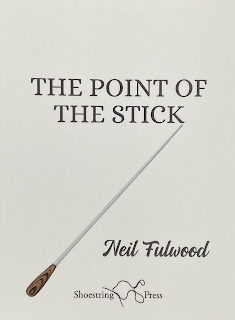Caroline Bath’s first novel was published by Valley Press in December 2023. She also writes poetry, and in 1999 was awarded an MA in Poetry with distinction from Huddersfield University for her thesis on Irish poetry with a particular focus on Louis MacNeice. She has a professional background as a teacher and university lecturer in Education and Early Childhood and is the author of several academic journal articles which deal with the ethics of care and young children’s participation. She is particularly interested in family issues and in 2015 she hosted a blog about the life of her elderly father and the care he received at the end of his life. You can see it here. She currently hosts a blog which discusses the issues raised by and about her novel. You can see it here.

About The Life We Make, by Caroline Bath
Against a backdrop which is full of convincing and vivid period detail, The Life We Make features a man haunted by desertion, as well as several strong and complex women characters, as seen from a feminist perspective. Because it revolves around the question of why generations unwittingly follow similar paths, the characters are multi-layered and often introspective as events play out and they attempt to build and rebuild their lives.
The Life We Make is essentially the story of Arthur and Agnes, a grocer and milliner, who marry somewhat in haste, following the emigration of Arthur’s family to Canada. They go through the motions of married life but often misunderstand each other. When Arthur is conscripted, the rupture burns a hole in him, and upon return from the war, despite his best intentions to be a good husband and father, he gambles and slides into mounting debts.
Whilst Arthur struggles with unrequited loss and money problems, Agnes discovers an innate capacity to be independent, so that when Arthur moves the family to Bournemouth, she returns home to rebuild her own life. The marriage limps on, despite their changing roles, but when another of Arthur’s jobs, ends in unemployment, he reaches the limits of financial and emotional humiliation and leaves his home and family for good.
In the final part of the novel, the focus of the story switches to 1941 and onto their youngest daughter, Eva, now 18, who has fallen for Cambridge scholar, David. She immerses herself in a secretarial job in London and witnesses the drama of the blitz, but the war triggers more despair over her father’s disappearance, and she finally confronts her mother and elder sister about what happened to him. As she learns more about her parents’ marriage, she decides to reject David’s proposal and find her father - but also to continue in her mother’s independent footsteps and build a career for herself.
You can read more about The Life We Make on the publisher's website here. Below, you can read an excerpt from the novel's "Prologue."
From The Life We Make
Whenever I feel worried like this, I make a cave with my covers and stay there for a few minutes. The air is warm, sounds are muffled, and the dark keeps me safe. People don’t realise that nine-year-olds get worried, but I’ve been worried for as long as I can remember – and I remember a lot – not quite being a baby, but I remember being small and seeing grown-up legs coming and going, then, suddenly, strange faces looming at me when I was picked up. It was scary at first, but Daddy was there, holding me and I knew his face. It had creases going in different directions which gathered around his wide mouth when he smiled at me. Most of his front teeth were white, but I could always see a blackened tooth at the back when he opened his mouth, pretending that he was surprised to see me. Bunny, where have you been hiding? he would say, his whole face a smile, and his mouth open – I always giggled which made him clutch me tighter. Then it was good to see faces, not legs – and giggling at the right time meant that other faces crowded in behind his, and I would bathe in a sea of smiles. I could bring happiness to the world, so long as he was there to lift me up.
I’m too big for him to pick me up now, he tells me, but at least he’s here again. There have been times when he wasn’t here, and Mummy wouldn’t say his name. Helen would tell me that he was coming back when his job finished, so I learnt to wait. Then, after I waited, he would come back and make me happy again, and I’d go with him to buy cigarettes, as if he’d never been away. Mummy was furious, but I was relieved that he’d found us because I wasn’t sure that he knew where we lived after we left the flat with the hiss of the sea. I wondered if I’d made up that place, but when he came back, he told me about it, and it became real again – as he did. His face had a few more creases and his hair started further back than I expected, but his teeth were the same.
When Daddy came back that last time, that was when I started to grow fast, and my worries got bigger. Everyone kept saying how much I’d grown, which was embarrassing. So, I would sink into my knees and avoid people’s eyes – at least the eyes of the people I didn’t want to meet which was, at that point, most people. Now, I’m better at looking them in the eye. He taught me that people back off if you look straight back at them. It doesn’t make sense, but he was right – you look up, and they leave you alone. It’s like magic.














